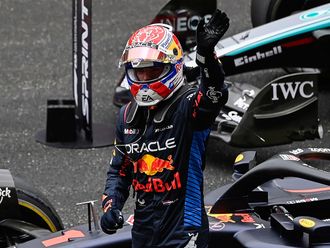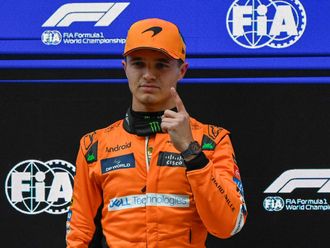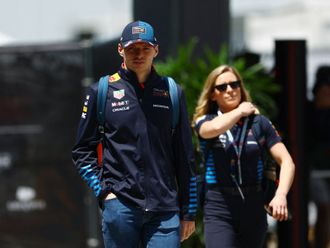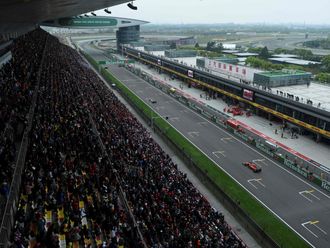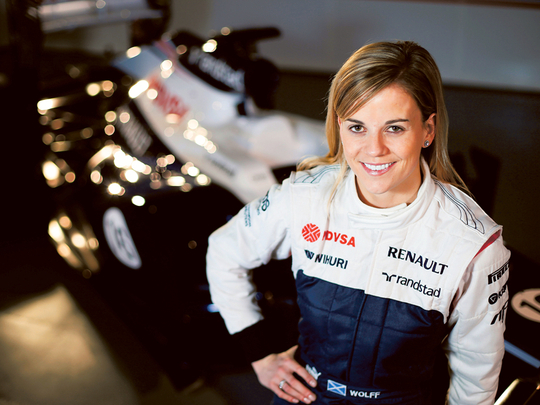
As we power through the 21st Century, the division between the two genders is being eroded away. And while there is still some way to go before men and women find themselves equal in business, sport, at least, has made great strides.
However, no amount of legislation, feminism or nepotism is going to change the fact that men and women have different bodies. The average man has roughly 30 per cent more muscle mass than the average woman, and pitting them against each other in certain sports is unfair.
That’s not to be a put down to sportswomen. Serena Williams, for example, would easily have me unconscious after three seconds in a game of tennis, and Jessica Ennis would make Phil “The Power” Taylor look ridiculous around the track.
Athletics, football, tennis, rugby, boxing… front-line women’s sport is fantastic. And no, that’s not meant to sound patronising either. Certainly, England’s male footballers could learn a thing or several from their female opposite numbers.
But here’s the thing: because of the athletic differences between genders, we never get to see them face-off against each other – and isn’t that what real equality is?
Motorsport is unique in the fact that it does indeed allow both sexes to compete against each other in equal machinery in an equal environment.
There have been female Formula 1 drivers before: five, to be exact. That’s compared to a total of 868 male drivers since 1950. Giovanni Amati was the last female racer in F1, back with Brabham in 1992. However, she was not successful and was dropped after three races after failing to qualify for any of them – rumour has it she ascertained the drive because she was lovers with a prominent team boss.
At the moment there are a few female racing drivers hovering around F1, with Susie Wolff being the most well-known. Wolff is a British driver who is currently the third driver for Williams. Her husband, Toto Wolff, is team principal over at Mercedes AMG.
As it stands today, Wolff is the best chance of a female making the grid. She is a professional with a good racing history which dates all the way back to karting. But here comes the sticky point: is she good enough for a Formula 1 drive on merit?
Let’s be clear, there have been numerous male F1 drivers over the years that haven’t deserved to be there, and they always slip away in the end. The day F1 gets a new female driver will be a media fanfare, and she – whoever it is – must be there on merit. Simply giving a race-seat to someone purely on the grounds that they are female is more patronising than asking them to iron your shirt.
While there are male drivers who are in F1 thanks to money rather than merit, let's be honest, they aren't really respected. It is an inescapable truth female drivers won't have that same liberty - and they wouldn't want it, I'm sure.
Female racing drivers can be good, better than good, and outright excellent. Look at Danica Patrick in the USA’s IndyCar series, she won the Indy Japan 300 in 2008 and finished third in the grueling Indy 500 a year later. There are plenty of young female racing drivers competing in junior racing formula all over the world, some of whom are purebred winners.
The danger is exploitation. Sponsors would be all too keen to rush a female driver into the cockpit if it helped their brand image. Certainly it would create a massive media buzz. But that media buzz would become a snake pit if said female driver wasn’t up to the task of racing in F1. The individual’s career would be destroyed and the teams’ reputation damaged. Worse still, it would harm the chances of further female participation. That's a sad prejudice that does remain in the sport.
Then there’s the pressure on whoever does make it happen. F1’s next female racing driver will be viewed as a role-model, whether they like it or not, and that’s a huge amount of pressure for who would be a new driver.
As with anything, you employ the person who is best for the job, regardless of gender, race, creed or indeed hair colour. When the time is right and a suitable female driver emerges, I have no doubt that she will be signed up to do the expected job. Susie Wolff is certainly a contender, but if there are faster drivers available she will remain on the sidelines.
That all being said, however, I see no problem with female racing drivers using their gender as a unique selling point to get to the top. Everyone in every walk of life should use whatever they have in their arsenal to get to the top, it shows ambition. Of course, you have to substantiate your claim with your talents and skills, or you’ll be shown the door.
Formula 1 would benefit from greater female participation in the cockpit, but it shouldn’t rush to get one on the grid just for the sake of it.
What will set F1 apart from other sports in the future, though, is that there will be no “Women’s” prefix… It’s everyone against everyone.


